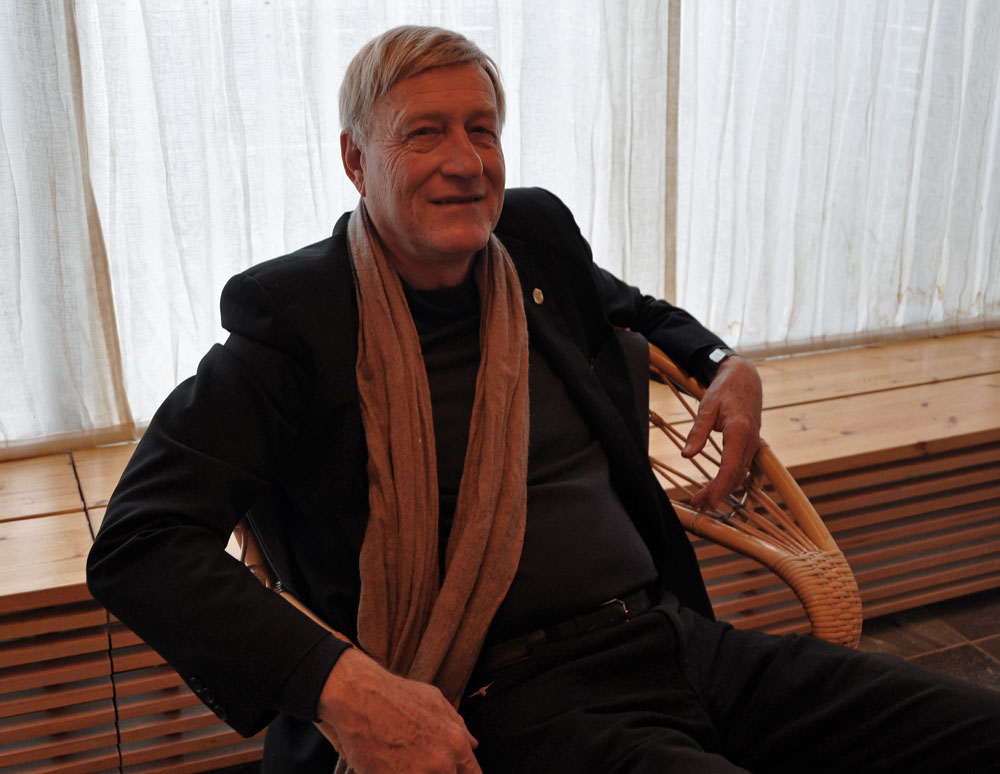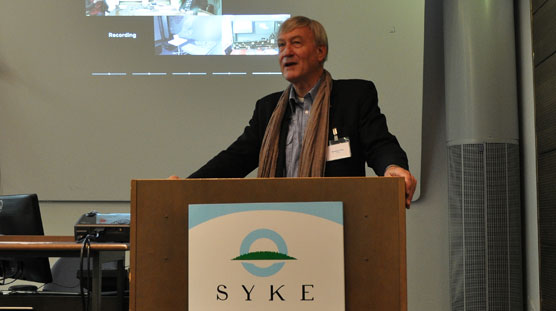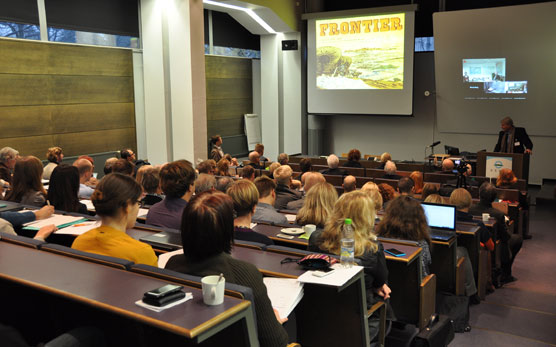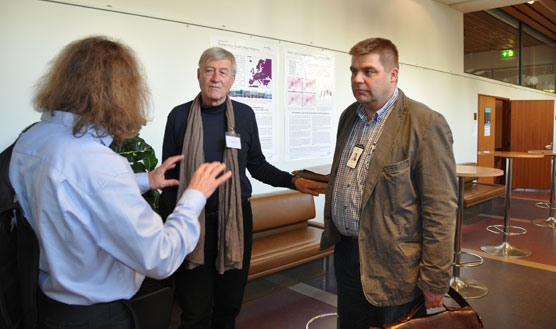
Professor Peter Newman. © Anna Toppari
Sustainable urban structure was raised in discussion in Helsinki at the end of October. The meetings of the European Union’s COST Action technology network brought experts in this field to the city from many parts of the world.
In an international seminar held at the Finnish Environment Institute (SYKE), Australian Professor Peter Newman presented his new theory of urban fabrics for the first time in Europe. The theory has been worked out with SYKE’s Senior Research Scientist Leo Kosonen.
Prof. Newman is a pioneer in sustainable urban planning. He has been studying ways of eliminating dependence on automobiles since the 1980s. At the moment, he acts, for example, as Lead Author for Transport for the Intergovernmental Panel of Climate Change (IPCC) and travels all over the world to put his theories into practice.
"The new theory of urban fabrics is about examining cities as fabrics resulting from three distinct transport options: walking, transit and cars. The theory enables cities to recognise, respect and rejuvenate each of the fabrics. Should cities want to succeed with all criteria for sustainable development, they should seek to reduce the fabric based on cars," Prof. Newman explains.

|
|
"
Car use is losing popularity in various parts of the world
", Professor Peter Newman reminded at SYKE.
|
Suburbs need to be transformed
Prof. Newman maintains that more development of transit city fabric and walking city fabric is the main urban agenda. "At the moment, one of the biggest challenges is to transform car-based suburbs into areas where people want to live as they are walkable and quality transit is easily available. If we can genuinely succeed in transforming a suburban area into a less car dependent urban region, this solution will become a success story. Helsinki and Kuopio have good examples of how this can be done and our research writings will tell the world about how."
"The starting point is that cities need to be good living environments for their residents. The ecological aspect is simply one part of the overall solution. All parties benefit from reduced car-dependence: cities become more environment-friendly; they attract social capital and, consequently, business operations, or economic success. The equation is as simple as that," Newman assures.
The Finnish Environment Institute has a role to play as an advocate for urban regions
Prof. Newman considers the research on built environment conducted by the Finnish Environment Institute important: "In the future, SYKE will play an important role as producer of research data on the viability of more sustainable urban systems. More evidence of the economic value of walking city fabric and transit city fabric is needed for decision-making purposes."
He continues: "Since days of old, people have been scared of densely built walking and transit cities, which evoke in them unpleasant images of cramped neighbourhoods and crime. It is SYKE’s task to inform them that, if planned properly, densely built walking and transit cities can be comfortable, successful, and simply better places to live."

|
|
Peter Newman spoke to a full auditorium at SYKE in October 2013.
|
More deeds are needed, and less use of scare tactics
Prof. Newman reports that it has been proved that car use is losing popularity in various parts of the world. He says: "China, India, and even the oil-producing countries are currently investing in metro transport. Even Africa is joining them. For example, Addis Ababa, Ethiopia, has made a plan for carbon neutrality, and in terms of traffic, the metro network plays an important role in the reaching of environmental targets."
Prof. Newman considers the necessary change in ways of thinking a big challenge but completely within reach.
"I believe not in exerting influence by fear but in giving people hope. People cannot be forced into making changes. Instead, they must be involved in the work from the very beginning. The keys to sustainable urban planning include convincing evidence, ability to negotiate and persuade, and figuring out overall solutions instead of individual targets," the Australian professor sums up.

|
|
German Researcher Jonathan Köhler (left), Peter Newman and SYKE's Senior Research Scientist Mika Ristimäki.
|
Further information
Text & images: Anna Toppari